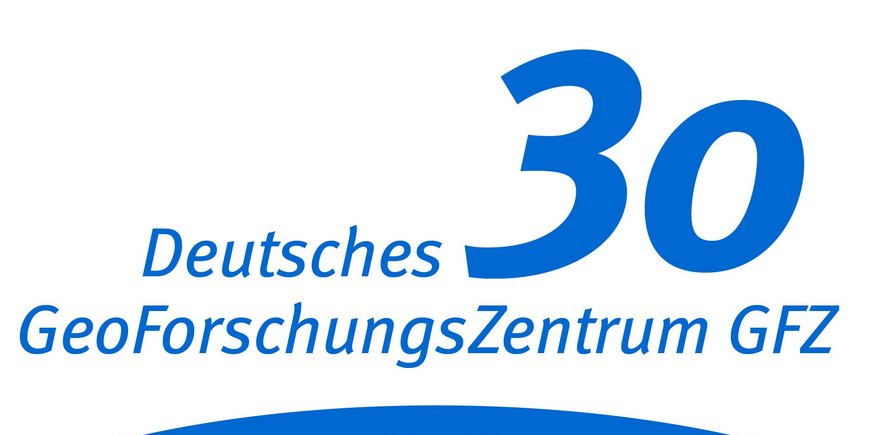The German Research Centre for Geosciences celebrated its 30th anniversary at its New Year's reception today, Tuesday 25 January. Together with several hundred employees and guests, it was not only an opportunity to look back on an eventful and successful history, but also to take a look at present and future tasks.
One of the highlights of the virtual event was the awarding of the Rolf Emmermann Medal to U.S. researcher, engineer and science manager Michael M. Watkins. Through his long-standing cooperation with the GFZ in the pioneering Gravity Recovery and Climate Experiment (GRACE), one of the most successful satellite missions of GFZ and the National Aeronautics and Space Administration NASA, and its succeeding mission GRACE Follow-On, Michael M. Watkins has provided uniquely valuable service to the GFZ and to the whole science community”, the jury had stated.
Children's interviews with, among others, the founding director of the GFZ, Rolf Emmermann - eponym of the honorary prize, which was awarded for the first time - and the physics laboratory technician Robert Peksa, who was recently honoured by the Chamber of Industry and Commerce as Germany's best apprentice, provided entertaining insights.
Also with Brandenburg's Minister of Research, Manja Schüle. In the interview with Linus (12), she revealed her first two career aspirations: ice cream saleswoman and medical doctor. Instead, she said, she became a politician, but with a soft ice cream machine and all the seasons of "Grey's Anatomy."
As such, the Minister wished the GFZ: "I hope that with the help of the research at the GFZ we will succeed in mastering the challenges of climate change and in developing ideas on how to preserve our living space on Earth.”
During his outlook, GFZ’s Scientific Executive Director Niels Hovius emphasized: "Children are the next generation on our planet and also the next generation researchers." He recalled milestones in the GFZ's history, including important satellite missions as well as major global projects, such as the International Continental Drilling Program ICDP and the GEOFON earthquake service. Looking ahead to future challenges, Hovius attached great importance to environmental observation, researching and minimizing geohazards, and a systemic approach in the earth sciences. He was particularly looking forward to the upcoming launch, in April, of the EnMAP environmental satellite, for which the GFZ has the scientific lead through GFZ working group leader Sabine Chabrillat.
Hovius shared his joy with Mike Schubert: Potsdam's Lord Mayor is also eagerly awaiting the launch of the satellite, which can “see” the world in 250 colors. In his welcoming address, Schubert also recalled the inauguration of the GeoBioLab in 2021, saying that the new building offers the opportunity to establish a forward-looking innovation campus for geo, climate and sustainability research on Potsdam's Telegrafenberg.
Innovations were a "matter close to the heart" of Thomas Sattelberger, Parliamentary State Secretary of the Federal Ministry for Education and Research: "Science can provide orientation, build bridges and generate knowledge for action. It is our compass into the future." Therefore, he called for "entrepreneurship" as well as knowledge and technology transfer. He also called on the GFZ to build on the cultural treasure of its employees from more than 65 nations. Diversity and equal opportunities were of utmost importance to him and his ministry.
The Potsdam Institute for Advanced Sustainability Studies IASS, which will become part of the Helmholtz Association and be administratively integrated into the GFZ, will also contribute to a plus in transfer in the future. GFZ Executive Director Niels Hovius welcomed this development: "We will have the unique opportunity to enrich our research and to enrich the IASS research - in an intensive inhouse collaboration that addresses the key factors for the transformation towards a sustainable future in a multidisciplinary way – based on geological knowledge."
Hovius also emphasised that the GFZ takes the mandate from politics and society to science seriously: "We are proud that we are mentioned in the new coalition agreement as a top location in Potsdam with a focus on climate and Earth system research. This entails very high expectations for our future research: We must gain knowledge and find solutions to climate change and its effects on the Earth system. This is our big goal, which we want to achieve - with all our staff, with our technical facilities and hopefully also with additional support."








![[Translate to English:] Torsten Sachs in front of a climate station on a field](/fileadmin/_processed_/3/9/csm__TorstenSachs_bearbeitet_GS_4a1365ef84.jpeg)

![[Translate to English:] left image flood at the Ahrtal: image from above, several houses are flooded; left image:: Heidi Kreibich;](/fileadmin/_processed_/4/4/csm_Bild2_9af0130e9f.png)



![[Translate to English:] Start der Vega Rakete](/fileadmin/_processed_/6/4/csm_20231201-kachel_Vega-VV23-launch_ESA-CNES-Arianespace_706716b68c.jpeg)









![[Translate to English:] Poster exhibition at the Brandenburg Hydrogen Day at the GFZ, some participants in the foreground](/fileadmin/_processed_/6/5/csm_Erster_Brandenburgischer_Wasserstofftag_GFZ_402fcec95e.jpeg)
![[Translate to English:] Group picture of the participants](/fileadmin/_processed_/9/4/csm_20231108_CAWa-Workshop-Tashkent_Gruppenbild_99ea779d8a.jpeg)

![[Translate to English:] [Translate to English:] Hörsaal](/fileadmin/_processed_/e/6/csm_H%C3%B6rsal_e21ac645fb.jpeg)


![[Translate to English:] The Delegations in the Historic Library on the Telegrafenberg. In the back there are from left to right, the Dutch Ambassador for Germany, Ronald van Roeden, the Dutch Minister for Education, Culture and Science, Robbert Dijkgraaf and the scientific director of the GFZ, Susanne Buiter.](/fileadmin/_processed_/d/b/csm_Kachel-2_9eba4b4212.jpeg)

